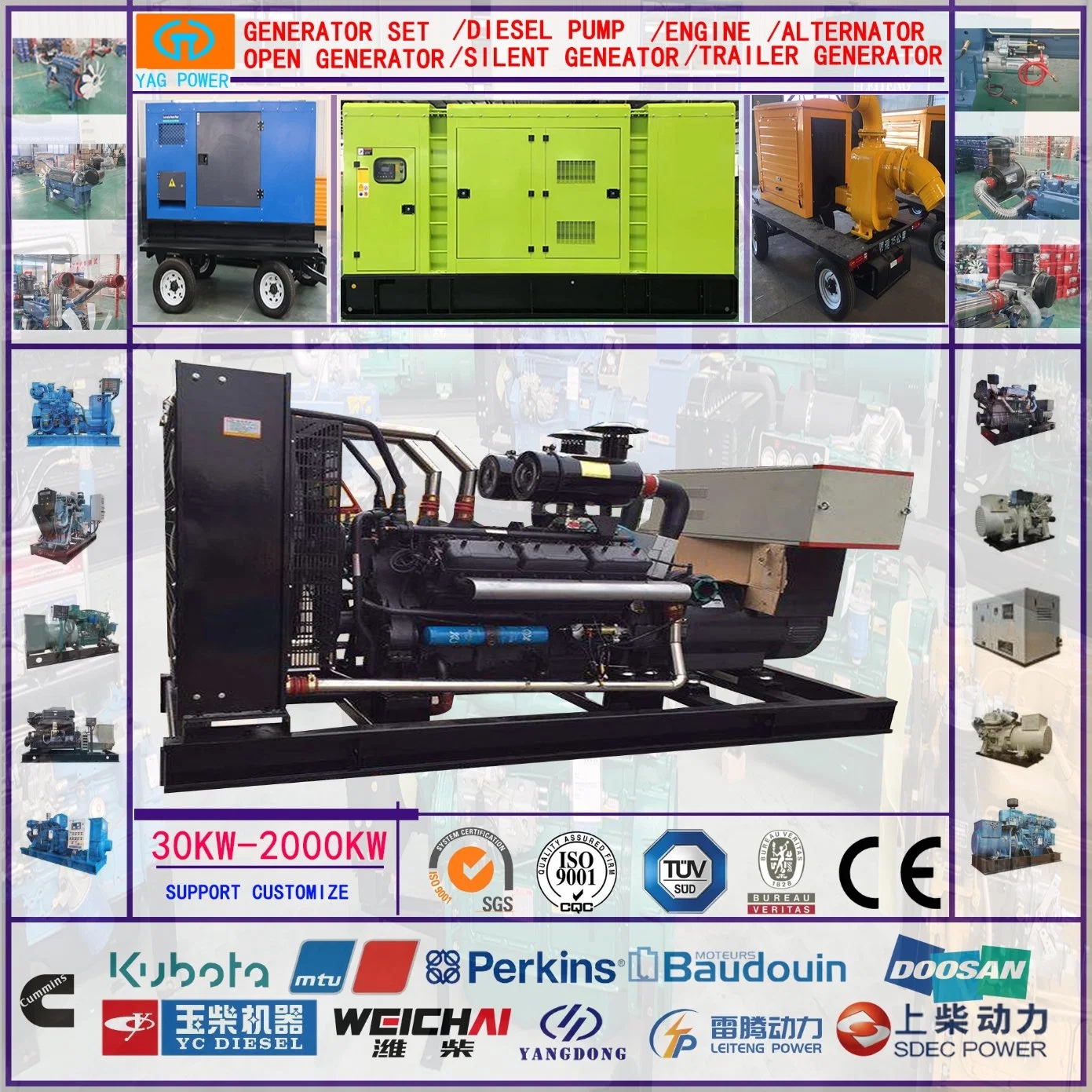Diesel Generators for Remote Power Supply Providing Reliable Electricity in Off-Grid Areas

Introduction
In today's modern world, access to electricity is considered a necessity for various activities and functions. However, there are still many remote areas around the globe that lack access to a reliable power supply due to their geographical location or limited infrastructure. In such off-grid areas, diesel generators play a crucial role in providing a reliable source of electricity. This article will explore the significance of diesel generators for remote power supply, their working principles, advantages and disadvantages, and the future outlook for this technology.
Importance of Diesel Generators for Remote Power Supply
Remote areas, such as rural villages, construction sites, mining locations, and disaster-stricken regions, often face challenges in accessing electricity from the main grid. In such situations, diesel generators serve as a vital solution for providing power to meet the energy needs of the local population or facilitate essential operations. These generators are versatile, portable, and capable of operating independently without the need for a connection to the main power grid. As a result, they offer a reliable source of electricity in areas where traditional power sources are impractical or unavailable.
Working Principles of Diesel Generators

Diesel generators operate based on the principles of internal combustion engines. The main components of a diesel generator include a diesel engine, an alternator, a fuel system, a cooling system, and a control panel. When the generator is started, the diesel engine ignites the fuel-air mixture, resulting in the generation of mechanical energy. This mechanical energy is then converted into electrical energy by the alternator, which produces an alternating current (AC) output. The control panel regulates the operation of the generator, monitoring parameters such as voltage, frequency, and temperature to ensure optimal performance.
Advantages of Diesel Generators for Remote Power Supply
1. Reliability: Diesel generators are known for their reliability and durability, making them a preferred choice for remote power supply applications. They can operate continuously for extended periods without significant maintenance requirements, providing a stable source of electricity in off-grid areas.
2. Fuel Efficiency: Diesel engines are more fuel-efficient compared to gasoline engines, resulting in lower fuel consumption and operating costs. This makes diesel generators a cost-effective solution for long-term power supply in remote locations.
3. Easy Maintenance: Diesel generators are relatively easy to maintain and service, with fewer moving parts and simpler designs compared to other types of generators. Routine maintenance tasks such as oil changes, filter replacements, and fuel system checks can be performed without specialized knowledge or tools.
4. Longevity: Diesel generators have a longer lifespan compared to other types of generators, thanks to the robust construction of their components and the use of high-quality materials. With proper care and maintenance, a diesel generator can provide reliable power for many years.
5. Versatility: Diesel generators are available in a wide range of sizes and power capacities, making them suitable for various applications in remote areas. Whether powering a small residential community or a large industrial site, diesel generators can be tailored to meet specific energy requirements.
Disadvantages of Diesel Generators for Remote Power Supply
1. Environmental Impact: Diesel generators produce emissions such as nitrogen oxides (NOx) and particulate matter, which can contribute to air pollution and environmental degradation. In remote areas with fragile ecosystems, the use of diesel generators may have negative consequences on local flora and fauna.
2. Noise Pollution: Diesel generators are known for their noise emissions during operation, which can be disruptive to the surrounding environment and inhabitants. In residential areas or wildlife habitats, excessive noise from generators may pose a nuisance or health risk.
3. Fuel Storage and Transportation: Diesel fuel requires proper storage facilities and transportation logistics to ensure a continuous fuel supply for the generator. In remote areas with limited infrastructure, the logistics of fuel delivery and storage can pose logistical challenges and increase operational costs.
4. Initial Cost: Diesel generators have a higher upfront cost compared to other types of generators, primarily due to the complexity of their components and the quality of materials used. This initial investment may be a barrier for small-scale projects or communities with limited financial resources.
5. Maintenance Requirements: While diesel generators are relatively easy to maintain, they still require regular servicing and upkeep to ensure optimal performance. Neglecting maintenance tasks can lead to breakdowns, reduced efficiency, and increased repair costs over time.
Future Outlook for Diesel Generators in Remote Power Supply
Despite the challenges and limitations associated with diesel generators, advancements in technology and environmental regulations are driving improvements in their efficiency and sustainability. The integration of renewable energy sources such as solar panels and wind turbines with diesel generators is a promising approach to reducing fuel consumption and emissions in remote power supply systems. read here that combine multiple energy sources can provide a more reliable and environmentally friendly solution for off-grid areas.
Moreover, the development of smart grid technologies, energy storage systems, and remote monitoring capabilities is enhancing the performance and reliability of diesel generators in remote applications. Remote power systems equipped with advanced control systems can optimize energy production, storage, and distribution, ensuring a stable power supply in challenging environments. Additionally, innovations in engine design, emissions control, and fuel efficiency are making diesel generators more sustainable and eco-friendly for off-grid power generation.
In conclusion, diesel generators play a vital role in providing reliable electricity for remote areas where access to the main power grid is limited. Despite their environmental impact and operational challenges, diesel generators remain a practical and cost-effective solution for off-grid power supply applications. With ongoing advancements in technology and a focus on sustainability, diesel generators are poised to continue serving as a crucial source of energy for remote communities and industries around the world.
